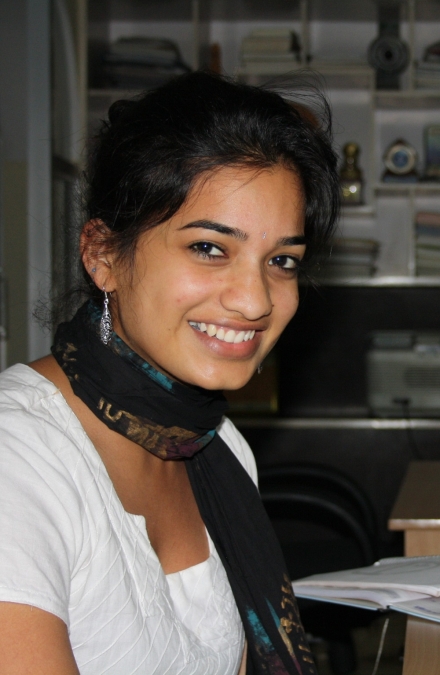
The LCEDN team is delighted to welcome Surabhi Rajagopal (pictured) as a Visiting Researcher. Surabhi is working for the LCEDN alongside completing a six month secondment at the SELCO Foundation. Surabhi has written the following blog to introduce herself and outline what she is looking forward to contributing towards the LCEDN portfolio and gaining from the role:
We can all agree that energy is a catalyst for local development, but the source of that energy and the means of delivering it will determine whether the development will be sustainable or not. Over the last 6 years, I have been working in India on the energy and development nexus and will be exploring this in a new setting as part of the LCEDN team at Loughborough University over the next 6 months.
In 2011, I completed a Master's in Environmental Policy and Regulation and wrote my thesis on renewable energy-based rural electrification in India. To me, both the degree and the dissertation reinforced the idea of a ‘win-win opportunity', one that combines environmental sustainability with local economic development. However, I soon realized that before being able to engage on policies that govern it, I first needed a clearer understanding of what rural electrification in developing countries actually entails.
I joined SELCO Foundation with the aim of understanding the ground realities. SELCO Foundation works with under-served communities to provide sustainable energy solutions that combine technology, finance and sustainable operational models. The foundation also works on research and innovation, by field testing new appliances and technologies that use clean energy systems for education, livelihood and healthcare.
Despite having lived in India for 20 years and completing a social science degree, all I knew about rural development were the facts and figures. Prior to SELCO, I had never taken the time to learn about the systems, processes and stakeholders that affect and determine those facts and figures: the relevance of Small and Medium enterprises, the importance of market linkages for livelihoods, the rural banking system and credit availability for communities, local vocational training institutions and their role in the maintenance of new appliances and technologies.
At SELCO Foundation, I worked on initiatives that develop the ecosystem for energy access, thereby enabling better deployment and adoption of decentralized renewable energy (DRE) solutions among the rural and urban poor. This includes identifying and developing interventions that institutionalise DRE solutions. For example, working with:
- Banks: to establish targets on DRE loans for households and livelihoods
- Skill development institutions: to set up solar labs and introduce solar training as part of the vocational course for electricians
- Rural development departments: to advocate for clean energy systems to power livelihoods under the Government’s rural livelihood mission
- Government energy departments: to use the above to inform and influence policy makers on new programmes, policy guidelines- the operational details that directly affect implementation
In order to create a stronger voice for the energy access sector on issues of financing and policy, and provide support services to enterprises on technology, skills and information, in 2014, 13 like-minded organizations came together to establish the Clean Energy Access Network (CLEAN). As part of the Interim working group I helped develop the business plan for CLEAN. And over the last year, I had the opportunity to work closely with CLEAN on the network’s strategy going forward and its initiatives on finance, policy and information. Some of the key concerns we sought to address for members included access to credit, technology innovation and advocacy to highlight the role of DRE in rural electrification- as a complement to the grid that can enable 24*7 power in the Indian context.
Having engaged with energy access on the field and at the ecosystem and policy levels, in this new avatar, I hope to learn and contribute to the collaboration between the research community and enterprises in this sector. Towards this, I will be spending the next 6 months working with the LCEDN team as a Visiting Researcher for the Transforming Energy Access (TEA) initiative. I will be focusing on understanding the research and innovation landscape in the UK and the EU on energy and development and on enhancing the capacity of researchers working on these issues. Alongside LCEDN, I will be working with CAFOD and partners on the Alliance of Civil Society Organizations working on Clean Energy Access (ACCESS).
I look forward to gaining fresh insights and sharing my experiences to contribute to the collective aim of ensuring that future development is socially, economically and environmentally sustainable.

